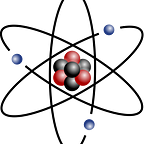QC Insights: A Guide to Quantum Computing
Power of Quantum Algorithms
Quantum Computing is a cutting-edge approach to computing altogether with an advanced computational paradigm by leverage the principles of quantum mechanics (describes how objects behaves at small scale, physics at the microscopic level and describing the behavior of an atom) to process and manipulate complex calculations more efficiently than classical computers.
Unlike classical bits, which are binary and can be either 0 or 1, quantum bits or qubits can exist in multiple states simultaneously, due to a phenomenon called superposition.
This property allows quantum computers to explore a vast number of possibilities in parallel, making them highly promising for solving problems that are currently beyond the capabilities of classical computers.
Search Algorithms in quantum computer exploit the quantum properties like superposition and interference to narrow down the search space and find the desired solution more efficiently. One such algorithm is Grover’s Search Algorithm, which promises quadratic speed up in the search evaluations over the classical algorithms.
Larger the data significantly faster than classical algorithm. This has implications for various applications, such as database searches and optimization tasks.
Quantum Computers can crack existing encryption methods an example be Shor’s algorithm, making current data protection vulnerable.
However, Quantum computers utilize another principle called entanglement, which links qubits together in such a way that the state of one qubit instantaneously influences the state of another, even if they are physically separated. Entanglement forms the foundation of quantum key distribution (QKD) protocols. These protocols leverage the unique properties of entangled particles to create secure communication channels immune to eavesdropping.
Quantum computing holds the potential to revolutionize various fields, such as cryptography, optimization, material science and artificial intelligence. It can solve certain problems which are currently infeasible for classical computers, like simulating complex quantum systems, factoring large numbers etc.
Here are some of the compelling use cases where quantum computing could have a transformative impact:
Cryptography and security: Quantum Computers can crack existing encryption methods an example be Shor’s algorithm, making current data protection vulnerable. However quantum key distribution can also supports unbreakable codes, ensuring highly secure communications.
Optimization: Quantum computers excel in solving complex optimization problems, such as route planning, portfolio optimization, supply chain optimization by processing numerous possibilities simultaneously, leading to more efficient solutions.
Machine Learning and AI: Quantum computing can enhance machine learning algorithms, speeding up tasks like pattern recognition, optimization, and data analysis.
Simulation: Quantum Computers, can simulate quantum systems more efficiently, enabling insights into chemical reactions, material properties and molecular interactions such as drug discovery, materials design and understanding fundamental quantum phenomena.
However, quantum computing is still in its experimental stages, facing challenges related to error correction, scalability, and noise interference.
We, Researchers and Engineers need to actively work to overcome these obstacles and unlock the full potential of quantum computing, which could usher in a new era of computation with profound implications for wide range of real-world applications.
In this series of articles, we discuss some of the algorithms, based on the techniques phase kick back, phase estimation, quantum Fourier transform, amplitude amplification.
Part 1: Introduction to Quantum Algorithms
- Intro to Quantum Computing
- Deutsch Algorithm
- Deutsch Jozsa Algorithm
- Bernstein Vazirani Algorithm
- Simon Algorithm
Part 2: Advanced Quantum Algorithms
- QFT: Quantum Fourier Transform
- QPE: Quantum Phase Estimation
- QPF: Quantum Period Finding
- Shor Algorithm
- Inversion about the mean
- Quantum Amplitude Amplifier
- Grover Iterator
- Grover Algorithm
Part 3A: Hybrid quantum/classical Algorithms
Part 3B: Hybrid Quantum Use cases
Part 4A: Introduction to Machine Learning
Part 4B: Quantum Machine Learning
- WIP
Part 5: Cryptography
- WIP
References: Qiskit Textbook, Wikipedia, arXiv, open-source materials.
